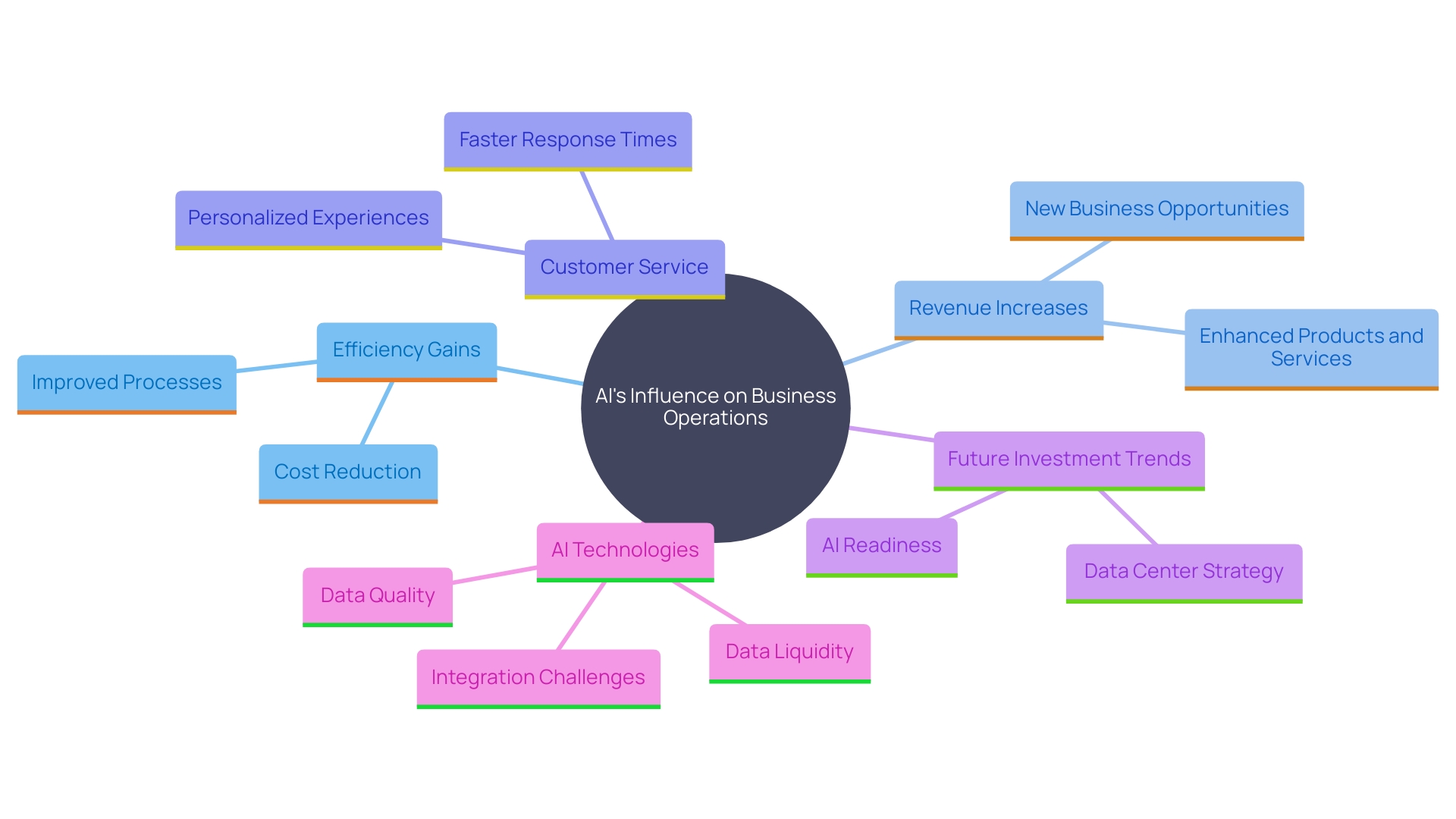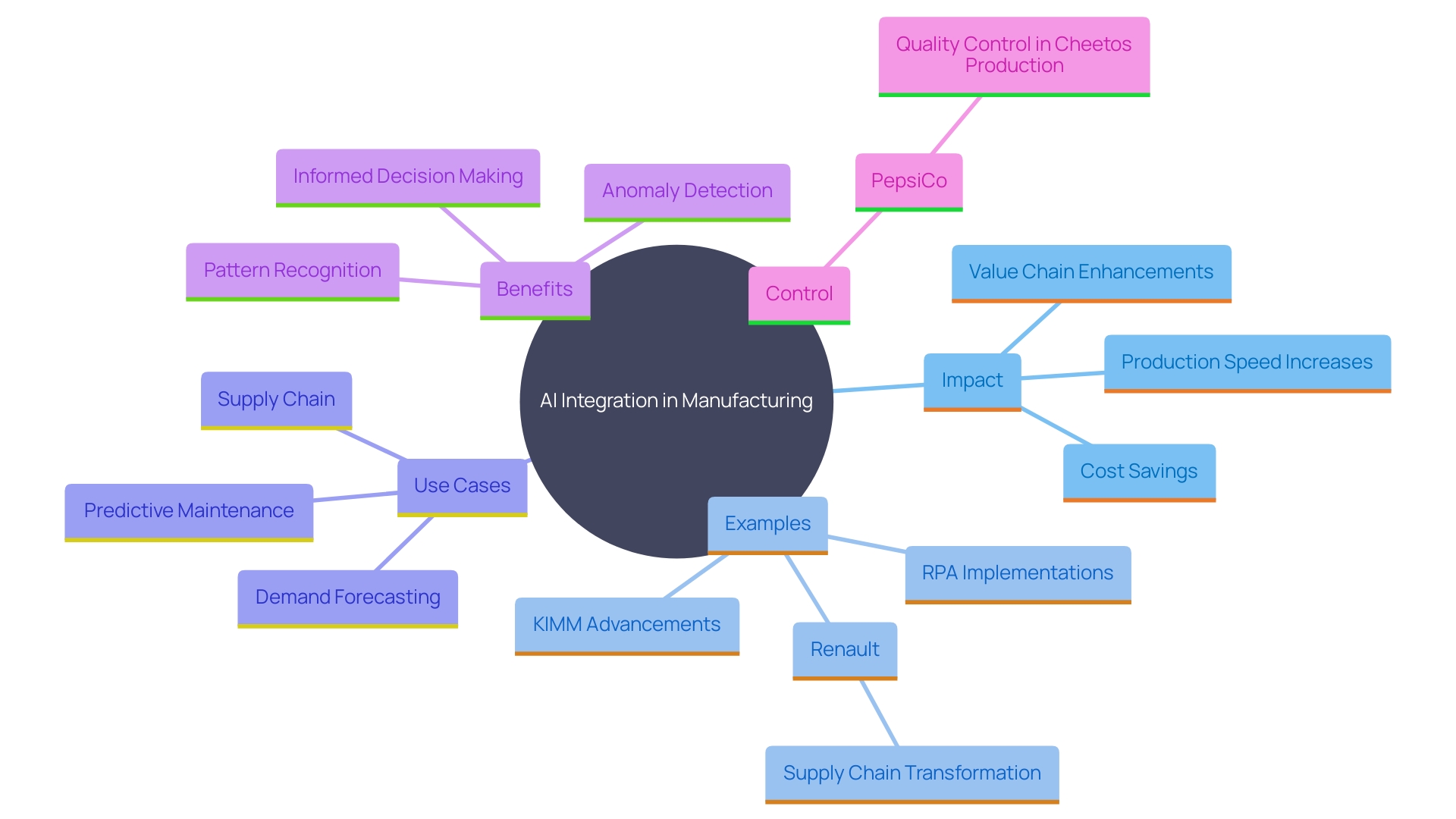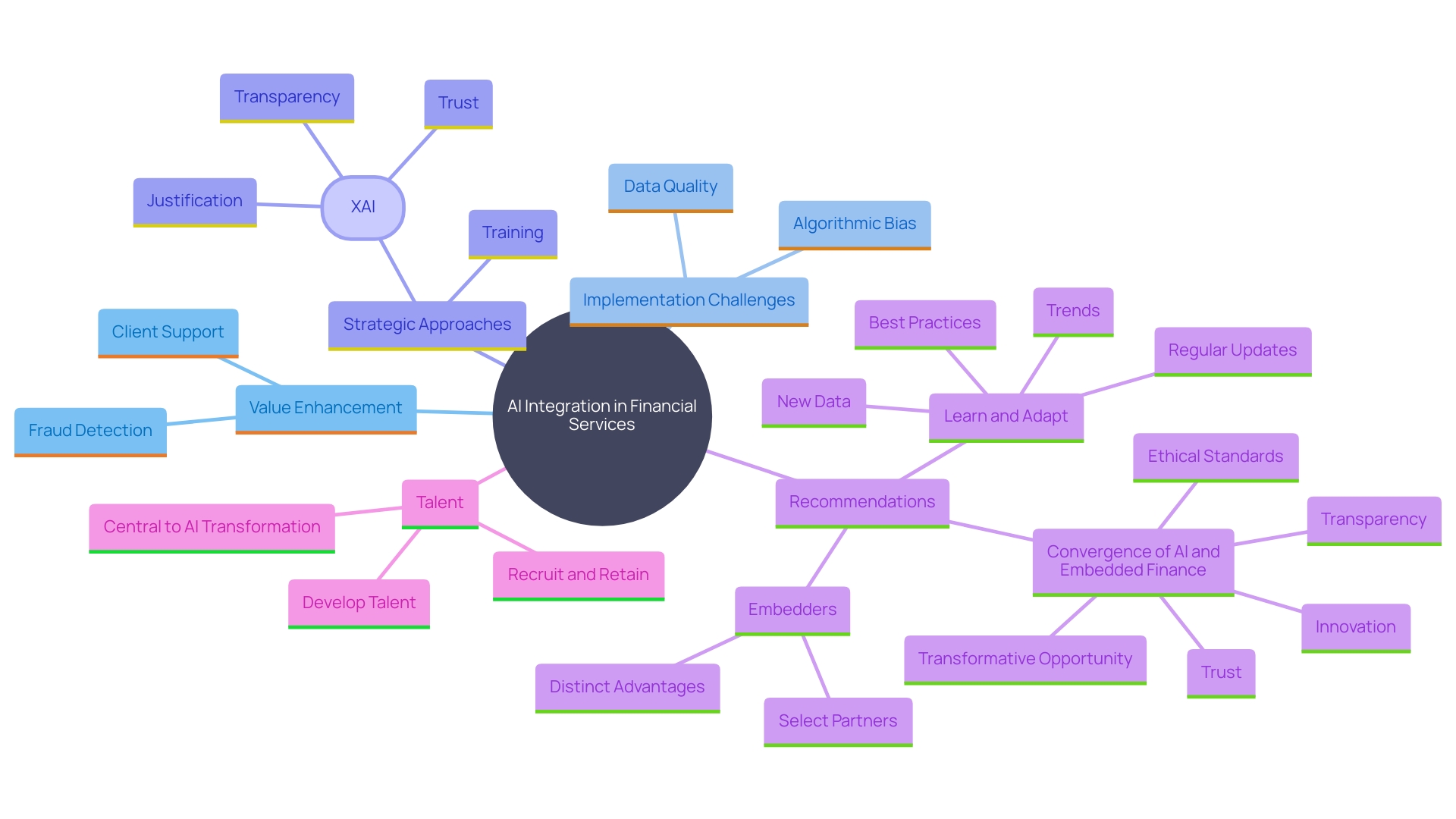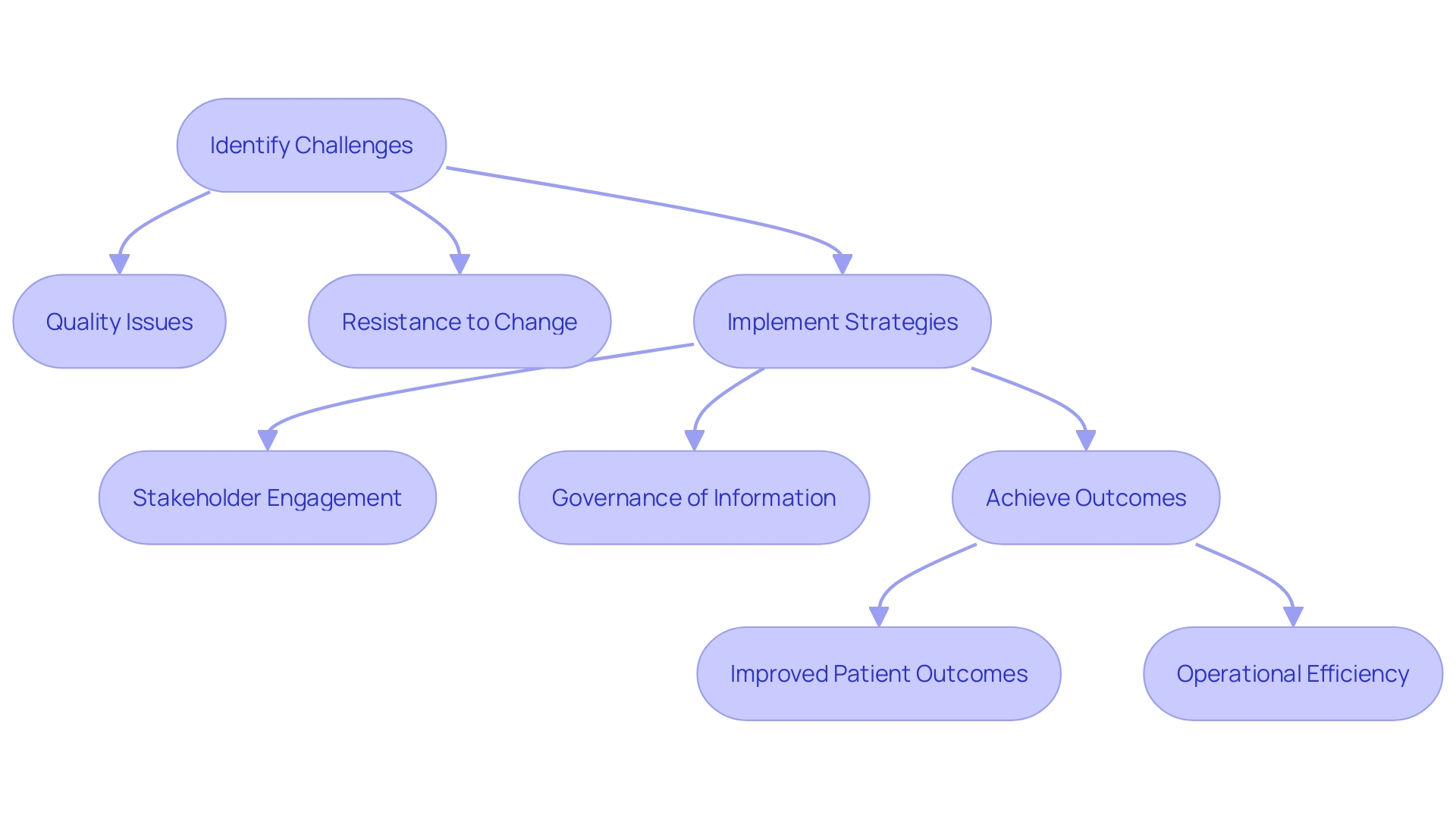Introduction
Artificial Intelligence (AI) has emerged as a game-changer in the business world, significantly transforming operations across various industries. By leveraging AI technologies, companies are achieving unprecedented levels of efficiency and productivity. For instance, a major retail chain successfully utilized AI-driven tools to optimize inventory management, drastically reducing excess stock and improving cash flow.
As businesses strive to remain competitive, the integration of AI not only enhances decision-making processes but also fortifies supply chains, elevating customer satisfaction. In today’s dynamic market, where exceptional customer service is paramount, AI’s role in streamlining business processes is more crucial than ever. This article delves into the benefits of AI, showcases its impact through real-world examples, and provides strategic insights on seamless AI integration to drive operational efficiency and future-proof businesses.
Benefits of AI in Streamlining Business Processes
AI technologies have revolutionized business operations across multiple sectors, driving significant enhancements in efficiency and productivity. Companies that embrace AI for streamlining processes report notable improvements. For instance, a prominent retail chain implemented AI-driven tools to optimize inventory management. By analyzing buyer purchasing patterns and predicting demand, the company reduced excess stock by 30%, significantly lowering holding costs and improving cash flow. This integration of AI not only accelerated decision-making but also enabled a more responsive supply chain, ultimately enhancing client satisfaction.
A recent survey revealed that 76% of decision-makers in e-commerce achieved revenue increases of 11% or more through AI utilization. Businesses across various industries are now leveraging AI for practical applications beyond consumer-focused tools. For example, real-time anomaly detection at the edge using EmbeddedAI and IoT showcases how AI can address operational challenges effectively.
The existing market circumstances require that retailers lower expenses while preserving outstanding client support quality. According to Salesforce’s fifth State of the Connected Customer report, 88% of customers value excellent service as much or more than the products themselves. As businesses continue to adopt AI-driven innovations, they not only stay competitive but also redefine the future of retail in the digital age. Investment in AI is rising, with 86% of e-commerce decision-makers planning to increase their AI investments despite economic headwinds.
AI’s potential to produce innovative information cost-effectively provides a competitive advantage to businesses that seize this trend. Integrating AI is not just a technological upgrade; it’s a strategic move to stay relevant and thrive in today’s dynamic business landscape.

AI-Driven Automation for Efficiency
The integration of AI-driven automation tools has revolutionized operational workflows. For example, Renault’s supply chain transformation started in 2017 with the establishment of an extensive information lake. This strategic move provided a solid foundation for the development of digital applications, enabling precise control over factory supplies. By dedicating 10% of their IT budget to information structuring, Renault developed a control tower connected to partners like Shippeo, significantly enhancing supply chain management.
A leading manufacturing company implemented robotic automation (RPA) combined with AI to handle repetitive tasks in their production line. This led to a substantial 40% reduction in labor costs and a 25% increase in production speed. The AI system constantly learns from the data it analyzes, enabling continual enhancements in efficiency and error reduction.
The Korea Institute of Machinery and Materials (KIMM) recently created an AI technology for robotic tasks that can be easily utilized in various manufacturing activities, including the production of electronic components. This technology, based on the Large Language Model (LLM) and virtual environment, enables automated task sequences and movements, further showcasing AI’s potential to revolutionize manufacturing.
As Professor Dr.-Ing. habil. Sascha Stowasser highlights, AI’s integration into manufacturing not only enhances production efficiency but also transforms the entire value chain from supply chain management to quality control. This case demonstrates the transformative power of AI in making traditional manufacturing methods more agile and cost-effective, heralding a new era of Industry 4.0.

AI Integration Strategies for Seamless Implementation
The successful integration of AI hinges on a robust strategy that aligns technology with business objectives. One financial solutions company embarked on this journey by pinpointing vital areas where AI could enhance value, such as fraud detection and client support. By conducting pilot programs and gradually scaling up successful initiatives, they ensured a smooth transition. Furthermore, they emphasized training employees to work alongside AI systems, leveraging human expertise to complement machine learning capabilities. This approach resulted in a seamless implementation process and higher acceptance rates among staff.
A report by EXL highlights that around 89% of insurance and banking firms in the UK have introduced AI solutions over the past year. This trend highlights the increasing significance of AI in financial sectors. Additionally, Accenture’s analysis reveals that 73% of the time spent by US bank employees has a high potential to be impacted by generative AI, with 39% by automation and 34% by augmentation. This potential encompasses almost every area of a bank, from the C-suite to the front lines of support.
Moreover, the convergence of AI and embedded finance presents transformative opportunities for the financial sector. However, the black box nature of certain AI models and the potential for algorithmic bias necessitate a commitment to transparency. Financial solutions providers and fintechs must invest in Explainable AI (XAI) to ensure that every decision made by an AI model is understandable, justified, and trusted by end users.
In terms of implementation, organizations face significant challenges in scaling AI projects. Data quality remains a major obstacle, with many enterprises struggling to move AI projects into production due to weak data foundations. In spite of these challenges, leaders in AI adoption are producing 62% of the value in core business processes, attaining success across various functions, from customer support to operations and procurement.
The strategic deployment of AI in financial services is not just about technology but also about fostering a learning culture that embraces new approaches. By managing the disruptive impact of technology and organizing information effectively, organizations can achieve meaningful improvements in productivity and efficiency. For instance, early adopters in the financial sector are projected to see substantial productivity improvements over the next three years, highlighting the significant potential of AI when integrated thoughtfully.

Challenges and Best Practices for AI Implementation
Implementing AI solutions presents various challenges, such as quality issues, resistance to change, and the need for skilled personnel. A healthcare provider faced considerable challenges when implementing an AI system for patient information management. To tackle these issues, the organization prioritized governance of information, ensuring the information utilized by the AI system was accurate and reliable. Early stakeholder engagement was crucial for fostering buy-in and reducing resistance. By adopting best practices like continuous training and iterative development, they successfully implemented the AI solution, leading to improved patient outcomes and operational efficiency. This approach mirrors the experiences of other organizations, such as a pharmaceutical company that achieved a 75% increase in operational efficiency through AI. Furthermore, AI tools have shown substantial benefits across various sectors, including a 20% improvement in customer satisfaction at a leading bank and over $15M in cost reductions for a major international airline. These examples highlight the transformative potential of AI when implemented strategically and with a focus on data quality and stakeholder engagement.

Conclusion
The integration of Artificial Intelligence into business operations is not just a trend; it has become a crucial strategy for driving efficiency and enhancing productivity across various industries. The evidence presented demonstrates that companies leveraging AI technologies are experiencing remarkable benefits, such as significant reductions in operational costs and improved customer satisfaction. For instance, retail chains optimizing inventory management with AI have seen reductions in excess stock and increased cash flow, showcasing how data-driven decision-making can lead to tangible financial results.
Moreover, AI-driven automation exemplifies the potential for operational transformation. Organizations like Renault have successfully utilized AI to enhance supply chain management, while robotic process automation has led to substantial gains in production speed and cost reductions in manufacturing. These examples illustrate that AI is not merely a technological enhancement but a powerful catalyst for reshaping workflows and improving overall efficiency.
However, the successful implementation of AI requires a strategic approach that aligns technology with business objectives. Companies must prioritize data quality, foster a culture of acceptance among employees, and address challenges such as algorithmic bias and the complexities of scaling AI projects. By investing in training and ensuring transparency in AI operations, organizations can maximize the benefits of AI while minimizing resistance to change.
In conclusion, the transformative impact of AI on business processes is clear. Embracing AI is essential for organizations aiming to remain competitive and responsive in today’s fast-paced market. By adopting best practices and focusing on strategic integration, businesses can unlock the full potential of AI, driving operational excellence and paving the way for future growth and innovation.

